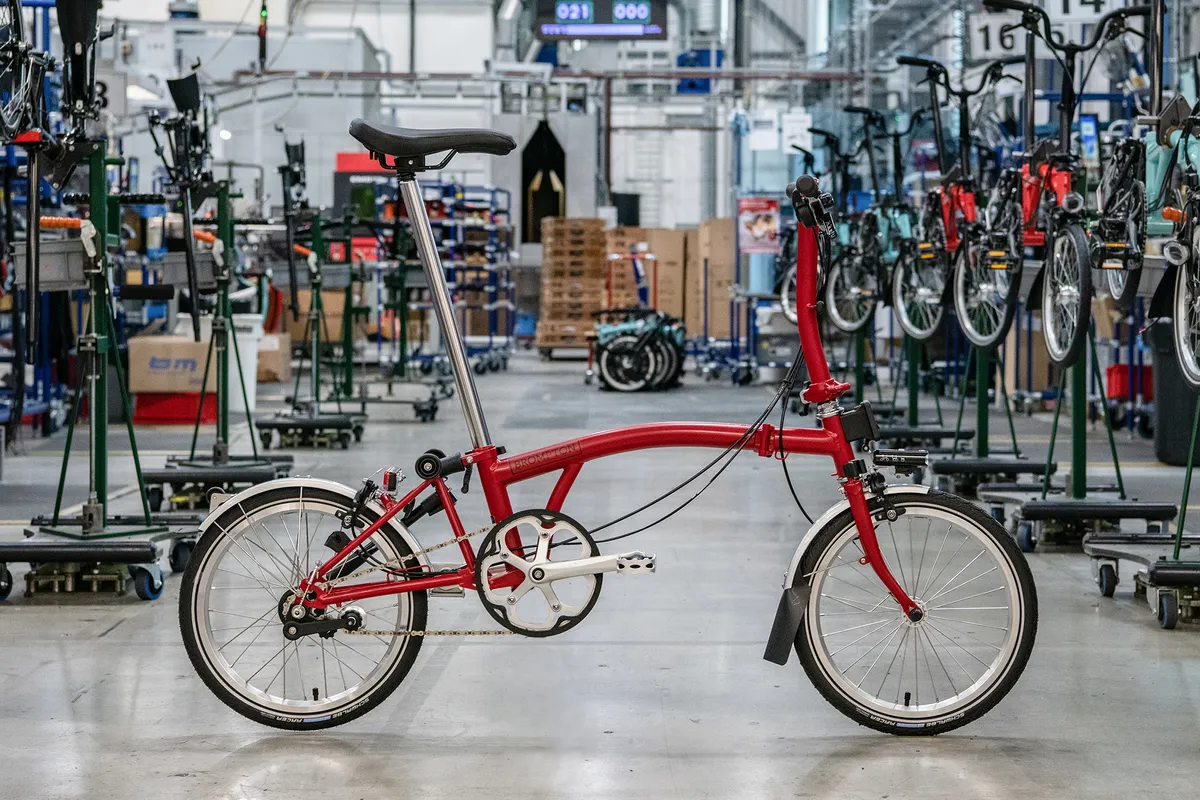Brompton has pointed to “wider global economic uncertainty and challenges in the cycling industry” after pre-tax profits for the folding bike manufacturer fell from more than £10 million to just £4,602.
According to accounts filed at Companies House for the 12 months to March 31, 2024, and published last week, Brompton sold 84,899 bikes – an 8.2 per cent reduction on the year before (91,875) – in a “challenging year for the Group”.
This contributed to a 5.3 per cent drop in sales, to £122.6m, alongside a 15 per cent increase in operating costs to £62.7m, “largely arising from increased staff and marketing costs related to the expected growth of the business”, according to the company’s filings.
"Profit before tax represents a 0.0% margin on sales (2023: 8.3%)," reads the report. "This decrease in profit margin is primarily due to the miss in budgeted sales by the Group, and the delay in being able to respond with a reduction in costs due to the committed and fixed nature of a number of them".
In an interview with The Guardian, Brompton boss Will Butler-Adams said continued overstock in the cycling industry was a factor behind the firm’s drop in sales – and predicted another difficult year in 2025.
“The industry is still in turmoil and will not get better this year,” said Butler-Adams. “It will not be as bad as 2024 but there is still excess stock.”

After a boom in interest and sales through the Covid-19 pandemic, which resulted in many brands and distributors over-expanding and over-estimating demand, the cycling industry has seen a significant contraction, with Brompton the latest to feel the effects.
Butler-Adams said the “retail environment has been decimated”. Online retail giants Wiggle and Chain Reaction were put into administration in October 2023, before being bought by Mike Ashley’s Frasers Group, owner of Evans Cycles, amid mass redundancies.
Numerous bike brands have also faced significant financial difficulties, including Orange Bikes, which called in the administrators in January 2024, and GT, which we reported to have reduced the size of its workforce and paused new releases in December.

Brompton released the G Line, its first off-road bike, in September 2024. Billed as the brand’s “biggest launch in 50 years”, Brompton’s head of design Will Carleysmith told BikeRadar that the G Line is aimed at the ‘mainstream bike market’. It is intended to appeal to those who would otherwise overlook a small-wheeled, folding bike.
The bike reflects Brompton’s long-term desire to grow as a business. Brompton, which employs more than 800 staff, plans to move to a new factory in Ashford, Kent, which would double its production capacity to approximately 200,000 bikes a year. The factory was originally expected to open in 2027.
Brompton received a cash injection from an equity fundraise in May 2023, bolstering the balance sheet, with net assets of £65.1m logged on the firm's Company House filings.
Brompton’s Companies House report also says the company is “investing in improving the consumer experience through the e-commerce platform and Junction retail store direct-to-consumer channels”, citing a 13 per cent increase in direct-to-consumer unit sales.

“The higher revenue achieved through DTC channels has contributed to maintaining the gross profit margin, despite an increase in direct costs”, reads the report.
Despite the gloomy outlook, Butler-Adams remains optimistic about the company’s fortunes, and Brompton’s ability, as a “utilitarian” brand, to flourish in a world where more people – and government authorities – are turning to cycling for commuting, as a means to reduce congestion and to combat climate change.
“London, Edinburgh, New York, Seville, Paris all have the momentum of getting people more active for air quality and trying to get people fitter,” Butler-Adams told The Guardian.
“In the macro picture things are going in the right direction. The industry shot itself in the foot but that will roll out.”
